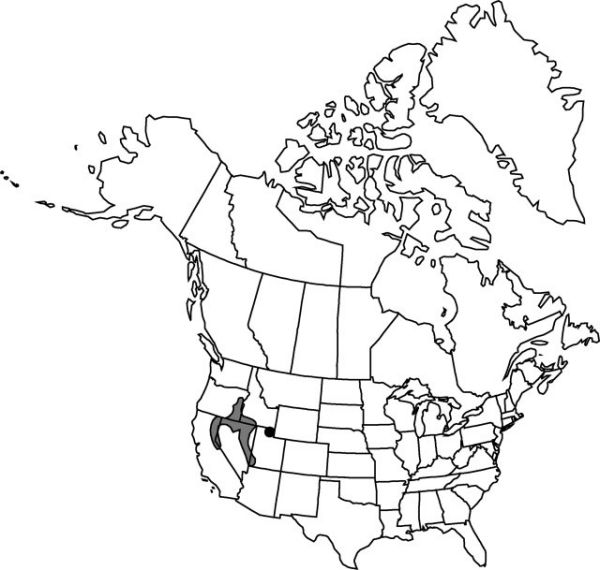Difference between revisions of "Allium lemmonii"
Proc. Amer. Acad. Arts 14: 234. 1879.
FNA>Volume Importer |
imported>Volume Importer |
||
| (5 intermediate revisions by 2 users not shown) | |||
| Line 6: | Line 6: | ||
|place=14: 234. 1879 | |place=14: 234. 1879 | ||
|year=1879 | |year=1879 | ||
| + | }} | ||
| + | |special_status={{Treatment/ID/Special_status | ||
| + | |code=F | ||
| + | |label=Illustrated | ||
| + | }}{{Treatment/ID/Special_status | ||
| + | |code=E | ||
| + | |label=Endemic | ||
}} | }} | ||
|basionyms= | |basionyms= | ||
| Line 11: | Line 18: | ||
|name=Allium incisum | |name=Allium incisum | ||
|authority=A. Nelson & J. F. Macbride | |authority=A. Nelson & J. F. Macbride | ||
| + | |rank=species | ||
}} {{Treatment/ID/Synonym | }} {{Treatment/ID/Synonym | ||
|name=Allium scissum | |name=Allium scissum | ||
|authority=A. Nelson & J. F. Macbride | |authority=A. Nelson & J. F. Macbride | ||
| + | |rank=species | ||
}} | }} | ||
|hierarchy=Liliaceae;Allium;Allium lemmonii | |hierarchy=Liliaceae;Allium;Allium lemmonii | ||
| Line 37: | Line 46: | ||
-->{{#Taxon: | -->{{#Taxon: | ||
name=Allium lemmonii | name=Allium lemmonii | ||
| − | |||
|authority=S. Watson | |authority=S. Watson | ||
|rank=species | |rank=species | ||
| Line 51: | Line 59: | ||
|publication title=Proc. Amer. Acad. Arts | |publication title=Proc. Amer. Acad. Arts | ||
|publication year=1879 | |publication year=1879 | ||
| − | |special status= | + | |special status=Illustrated;Endemic |
| − | |source xml=https:// | + | |source xml=https://bitbucket.org/aafc-mbb/fna-data-curation/src/2e0870ddd59836b60bcf96646a41e87ea5a5943a/coarse_grained_fna_xml/V26/V26_511.xml |
|genus=Allium | |genus=Allium | ||
|species=Allium lemmonii | |species=Allium lemmonii | ||
Latest revision as of 21:15, 5 November 2020
Bulbs 1–5+, not clustered on stout primary rhizome, ovoid, 1.5–2.2 × 1–2 cm; outer coats enclosing 1 or more bulbs, brown, membranous, ± prominently cellular-reticulate, cells in ± regular vertical rows, narrowly rectangular, transversely elongate, without fibers; inner coats white to light brown, cells ± narrowly rectangular, transversely elongate, or quadrate. Leaves usually deciduous with scape, green or withering only at tip at anthesis, 2, basally sheathing, sheaths not extending much above soil surface; blade solid, flat, falcate, 8–30 cm × 3–5 mm, margins entire. Scape usually forming abcission layer and deciduous with leaves after seeds mature, frequently breaking at this level after pressing, solitary, erect, solid, flattened, narrowly winged, 15–20 cm × 1–4 mm. Umbel persistent, erect, compact to ± loose, 10–40-flowered, hemispheric, bulbils unknown; spathe bracts persistent, 2–3, 8–10-veined, broadly lanceolate to ovate, ± equal, apex long-acuminate. Flowers campanulate, 6–9 mm; tepals erect, pink to whitish, lance-ovate, ± equal, becoming ± rigid in fruit, margins entire, apex acute to acuminate; stamens ± equaling tepals; anthers light purple to yellow; pollen yellow; ovary obscurely crested; processes 6, low, central, 2 per lobe, margins entire; style linear, equaling stamens; stigma capitate, scarcely thickened, unlobed; pedicel 8–16 mm. Seed coat dull; cells smooth. 2n = 14.
Phenology: Flowering May–Jun.
Habitat: Drying, clay soils
Elevation: 1200–1900 m
Distribution

Calif., Idaho, Nev., Oreg., Utah.
Discussion
Selected References
None.
